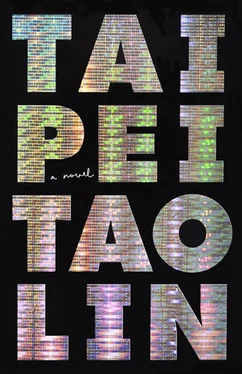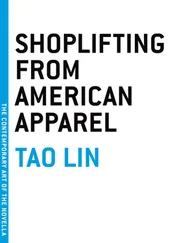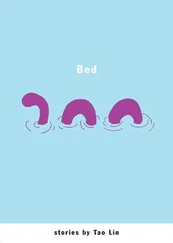“We can cut it there,” said Erin with a bored expression. “It doesn’t really matter.”
“We’ll just cut it here,” said Paul, and slowly swiveled his head toward the cocaine. He grasped the cute, orange-capped vial with the thumb and middle finger of his right hand, whose full weight rested on the table. “I don’t care about cutting it. When we put it back in, won’t it, just, like, turn into a clump again?”
“We don’t have to,” said Erin. “I don’t really care.”
“Why cut it, though? Doesn’t it all just go in you?”
“It doesn’t hurt as much,” said Erin, and gestured at the top half of her face and said things about sinuses, that it was “healthier” and that “more of it gets absorbed, instead of going in your stomach,” as Paul thought about referencing Cocaine: A Drug and Its Social Evolution, a book he knew Erin knew he’d been reading. “It all gets absorbed,” he said. “It’s the same if you eat it or snort it.”
“Then why does everyone snort it,” said Erin seeming neither curious nor rhetorical.
“People do a lot of things. I don’t know why, probably a lot of reasons. It’s the same as long as it’s inside of you. I read the book. The cocaine book.”
“That’s true,” said Erin.
“So, you should listen to me,” said Paul grinning slightly.
“The book said it’s the same if you eat it?”
“Yeah, or something,” mumbled Paul looking away. “I don’t remember what it said.”
“What else did the book say?”
“A lot of things. I don’t know. I haven’t finished it yet. I’m going to pee.” Paul stood grinning and went in the bathroom and peed a little. He splashed water onto his face. He dried his face with a hand towel and entered his room. “That was our first ‘drug fight,’ ” he said still grinning a little.
“I was going to say that,” said Erin.
“I feel like we handled it well.”
“It was good,” said Erin absently.
“I tried using the book,” said Paul grinning. “The cocaine book.”
“I noticed,” said Erin with a neutral expression.
At Variety, after snorting the remaining cocaine in Paul’s room, they decided to type accounts of their “drug fight.” Paul finished and left for Union Square to mail drugs to Taiwan. The shoebox, on his lap, felt “like a cat,” he kept thinking on the L train. He walked in a distended circle, like a comet’s orbit, on the wide sidewalk outside FedEx, which at 7:54 a.m. was locked and dark, listening to music through earphones, until an employee, seeming to slightly feign, Paul felt, being rushed, unlocked the door and entered and turned on the lights. Paul’s package would cost $89 to mail, said the employee, then walked out of view, toward the back of the store. Paul slowly filled out a form, then carried the form toward the exit, stood uncertainly in place a few seconds, returned to the counter, walked distractedly toward the exit, put the form in the trash, left FedEx. He rode the L train five stops. He bought two containers of pineapple chunks from a deli. “It would’ve cost $89 to mail,” he said at Variety. “I’m just going to put it in my bag. If I go to jail I’ll just write Infinite Witz, ” he said referencing two very long novels, Infinite Jest and Witz.
“What?” said Erin with an inattentive expression.
“If I go to jail I’ll just focus on writing Infinite Witz, ” said Paul, and in the time and location of waiting, for himself to repeat what he’d said, he imagined the scenario and was a little surprised at the ease and speed with which he felt he would accept it — and that he would be relieved, to be removed from the confusing, omnidirectional hierarchy of his life. Erin smiled and said “good” and patted his shoulder, and he felt surprised again, as he hugged her, realizing that he wouldn’t be removed from his life — only dying would remove him — so would feel the same probably. He would still be — and be inside — the invulnerable dot of himself, irreducible and unique as a prime number, on or off, there or not, always following itself perfectly. Paul pushed the shoebox toward the bottom of his duffel bag, wedging it between layers of clothing, and they read each other’s “drug fight” accounts while eating pineapple chunks.
“We both wrote it in a Raymond Carver — esque manner.”
“I was thinking that,” said Erin. “The story with the baby.”
In the taxi, at one side of the backseat, Paul felt surreally distant from Erin, at the other side, like he would need to turn his head more than 90 degrees to see her. Through the window, against his face, the early-morning light had the vertical glare and the accumulated, citrus heat of a late-afternoon sun. “I feel really depleted, I’m closing my eyes until we get there,” said Paul in a voice that was agitatedly boring for himself to speak and hear and that seemed to echo inside his mouth, staying where it began.
At the airport, when they got out of the taxi, Erin asked how Paul felt and he murmured “zombie-like” without moving his head. They held hands while standing in line for luggage check-in, but Paul avoided looking at Erin, facing away from her as much as possible, to try to convey, without speaking, that he did not want to be asked any more questions, be looked at, or otherwise feel pressured to do or think anything. Unsure if Erin, at whatever moment, was receiving his communication, or not, or to what degree she was, or was not, Paul felt a constant dread of what might happen next, mostly that Erin might ask him another question. He wanted to hide by shrinking past zero, through the dot at the end of himself, to a negative size, into an otherworld, where he would find a place — in an enormous city, too large to know itself, or some slowly developing suburb — to be alone and carefully build a life in which he might be able to begin, at some point, to think about what to do about himself.
They lay on their backs on a padded seat continuously lining one side of a cafeteria with no restaurants open yet. When Paul woke, drooling a little, he moved into a sitting position with his elbows on a table, and saw that Erin was gone. Before forming any thoughts, or discerning any feelings, he saw her, in the distance, outside the cafeteria, walking parallel to a moving walkway with her iPhone to her ear, becoming out of view. Paul noticed a scrap of paper on his lap, from Erin, saying she was going to the bathroom and calling her friend and would be back by 9:15 a.m. Paul saw her at 9:08 a.m. hurriedly enter a store outside the cafeteria. She approached with pineapple chunks and bottled water, smiling at Paul’s neutral expression. “I got you this,” she said, and Paul mutely held the container of pineapple chunks a few seconds before placing it distractedly on the table.
“Where did you go?” said Paul self-consciously.
“I went to the bathroom and called my friend Jennika. Did you see my note?”
“I didn’t until like five minutes after I woke,” said Paul with aversion toward himself, aware he saw the note within a minute maybe. He asked why Erin didn’t stay within view to talk on the phone. Erin said she hadn’t thought of that and Paul said it was okay and — finally, self-conscious at the delay — thanked her for the pineapple chunks and opened the container and moved a chunk, with a fork, toward Erin’s mouth. Erin shook her head. Paul moved the chunk into his mouth and, after his mouth stopped moving, asked what Erin talked to Jennika about on the phone.
“I told her I got married and was going to Taiwan, and she got angry and just started sobbing and yelling at me,” said Erin, and without noticeable change in her slack posture, facing the empty cafeteria, began crying a little. Paul carefully held her — weakly, tiredly “hating himself,” he felt — and, after she stopped crying, asked why Jennika had been angry. “She was angry I didn’t tell her sooner. She kept saying she would never do that to me and that I was a bad friend.”
Читать дальше












